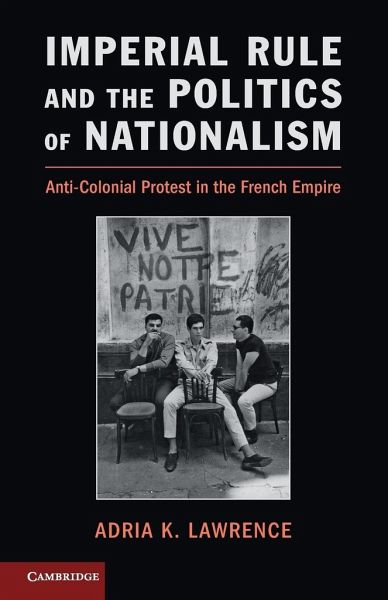
Imperial Rule and the Politics of Nationalism
Anti-Colonial Protest in the French Empire
Versandkostenfrei!
Versandfertig in 1-2 Wochen
35,99 €
inkl. MwSt.
Weitere Ausgaben:

PAYBACK Punkte
18 °P sammeln!
During the first half of the twentieth century, movements seeking political equality emerged in France's overseas territories. Within twenty years, they were replaced by movements for national independence in the majority of French colonies, protectorates, and mandates. In this pathbreaking study of the decolonization era, Adria Lawrence asks why elites in French colonies shifted from demands for egalitarian and democratic reforms to calls for independent statehood, and why mass mobilization for independence emerged where and when it did. Lawrence shows that nationalist discourses became domin...
During the first half of the twentieth century, movements seeking political equality emerged in France's overseas territories. Within twenty years, they were replaced by movements for national independence in the majority of French colonies, protectorates, and mandates. In this pathbreaking study of the decolonization era, Adria Lawrence asks why elites in French colonies shifted from demands for egalitarian and democratic reforms to calls for independent statehood, and why mass mobilization for independence emerged where and when it did. Lawrence shows that nationalist discourses became dominant as a consequence of the failure of the reform agenda. Where political rights were granted, colonial subjects opted for further integration and reform. Contrary to conventional accounts, nationalism was not the only or even the primary form of anti-colonialism. Lawrence shows further that mass nationalist protest occurred only when and where French authority was disrupted. Imperial criseswere the cause, not the result, of mass protest.














